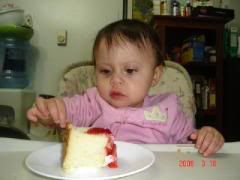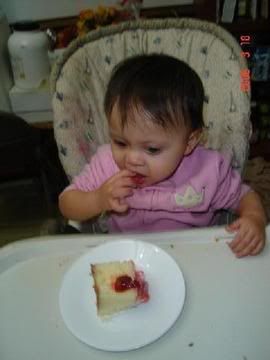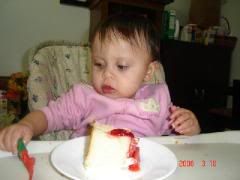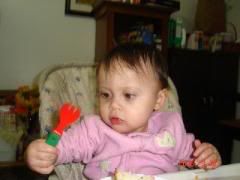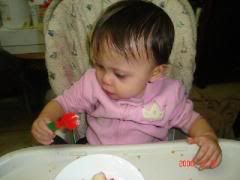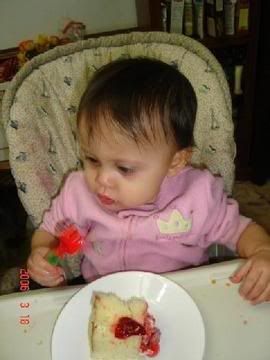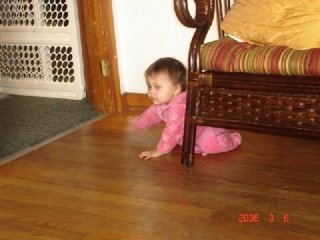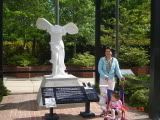Jean Piaget: Cognitive Development
Cognition refers to the development of mental activity, thinking intelligent behaviour and/or understanding. It has a major impact on other areas of development.
What we know now on how children think is due to Jean Piaget. His work provided revolutionary insight into HOW the developing mind works. He stressed the active role of the child in the learning process. He saw the child as struggling to make sense of the world around him like a little scientist, observing hypotheses and testing them. According to Piaget, the child actively constructs his own knowledge and this is facilitated by the learning environment adults provide.
Through researches with children, Piaget was able to describe cognitive development. He explained the interrelated principles of organization, adaptation and equilibration. His principles are of course apparent in our own children if we only closely observe them.
Just look at my Karllisse. She has this scheme that she can eat the food given to her by using her hands to bring it into her mouth.
When fork is introduced to her, like a little scientist as Piaget termed, she is studying the new experience- the fork, intently.
She learns to assimilate this new scheme by integrating her existing scheme of eating food using her hands, and then learns how to use the fork. When she discovers that it needs a different way to control her hand muscles that she needs to coordinate her palm muscles and finger muscles to eat with a fork, she accommodates by modifying the old scheme. Accommodation and assimilation work together to provide an equilibrium here. There is an apparent cognitive growth in Karllisse as she was able to acquire a new knowledge; she can use the fork to eat. That is an achievement in her practical knowledge acquisition.
What we know now on how children think is due to Jean Piaget. His work provided revolutionary insight into HOW the developing mind works. He stressed the active role of the child in the learning process. He saw the child as struggling to make sense of the world around him like a little scientist, observing hypotheses and testing them. According to Piaget, the child actively constructs his own knowledge and this is facilitated by the learning environment adults provide.
Through researches with children, Piaget was able to describe cognitive development. He explained the interrelated principles of organization, adaptation and equilibration. His principles are of course apparent in our own children if we only closely observe them.
Just look at my Karllisse. She has this scheme that she can eat the food given to her by using her hands to bring it into her mouth.
When fork is introduced to her, like a little scientist as Piaget termed, she is studying the new experience- the fork, intently.
She learns to assimilate this new scheme by integrating her existing scheme of eating food using her hands, and then learns how to use the fork. When she discovers that it needs a different way to control her hand muscles that she needs to coordinate her palm muscles and finger muscles to eat with a fork, she accommodates by modifying the old scheme. Accommodation and assimilation work together to provide an equilibrium here. There is an apparent cognitive growth in Karllisse as she was able to acquire a new knowledge; she can use the fork to eat. That is an achievement in her practical knowledge acquisition.
This may be simple for us adults. But you see if we only observe children closely, we’ll discover that children are really active learners. From a simple discovery, they will learn more when given more things to explore. So why not provide your children with more enriching and explorative environment?










